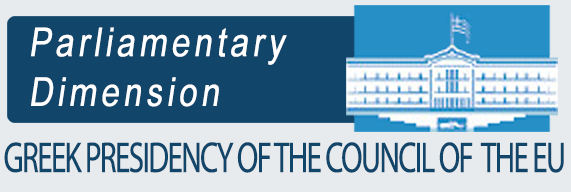Languages
- TTETransport, Telecommunications and Energy (TTE)
Priorities in the energy sector presented in Brussels by minister of Environment, Energy and Climate Change, Yiannis Maniatis
The Minister for Environment, Energy and Climate Change Ioannis Maniatis, , presented, at a EU Energy Council held in Brussels on 12 December 2013, the priorities of the incoming Greek Presidency in the energy sector.
The priorities of the Greek Presidency of the EU Council during the first semester of 2014 are centred on three milestones for the development of the EU Energy Strategy. In particular:
- the completion of the internal energy market by the end of 2014
- the target of year 2015, by which time no Member - State will be left excluded from European gas and electricity networks and,
- the expected International Agreement on Climate Change in 2015
In this context, the Greek Presidency will promote EU policies on energy and climate change beyond 2020, based on the anticipated Communication of the European Commission's "Framework for the 2030 climate change and energy". A policy debate on the framework for 2030 has been scheduled to take place during the EU Energy Ministerial Council on the 4 March 2014, fuelling discussions at the European Council of 20-21 March 2014.
Beyond the Framework for 2030, the issue of energy prices and its impact on EU competitiveness constitutes the second priority, aiming at securing existing jobs and supporting actions to create new ones. The Greek Presidency, making best use of a relevant European Commission Communication, expected in January, is planning a policy debate on the issue during the Energy Ministerial Council of 4 March 2014, which will pave the way for the adoption of related Conclusions during the Energy Ministerial Council of 13 June 2014. The global economic crisis, EU experience from energy and climate change policies, but also recent developments in the energy sector (e.g. the exploitation of shale gas in the U.S. and Canada), will be a springboard for discussions on energy cost and hence on the competitiveness of European industry.
The consideration of the energy cost issue from the perspective of cost for end-use households and especially vulnerable consumers is the third, equally important, priority of the Greek Presidency. The Presidency intends to give special priority in promoting activities and exchanging best practices that will enable consumers to fully benefit from the internal market and to exercise rights and options available to them, while ensuring adequate protection for vulnerable consumers. To this end, the Presidency will also give priority to energy-saving initiatives and the promotion of energy efficiency as appropriate measures to help reduce problems faced by vulnerable consumers and address the issue of energy poverty.
The issue of integration of the internal market is also a major priority. The Presidency, taking into account that broad public participation as well as the satisfaction of social demands constitute dominant factors for the integration of the internal energy market, will seek to highlight the necessary actions in order to optimize the benefits of the integrated market bridging existing gaps between the interconnections of Member States, thus raising the significance of the internal market for isolated regions in the European Union.
The issues of energy security and energy infrastructure are of special importance as priorities of the Greek Presidency. Therefore, during the Informal EU Ministerial Energy Council of May in Athens, important developments on the diversification of sources and routes in the Union, such as the Southern Corridor and the Eastern Mediterranean, as well as the appropriate tools for financing Projects of Common Interest (PCIs) will be discussed.
International relations in the energy sector will also be discussed in the EU Ministerial Energy Council of June 2014 and, in particular, the importance of multilateral international and regional co-operations, such as the Energy Community for South Eastern Europe and the Union for the Mediterranean.
With regard to the indirect land use change (ILUC), further possibilities will be explored, following recent developments on the issue.
On the issue of priorities on nuclear energy sources, the minister said:
Greece is known as a non-nuclear country and nuclear energy is not included in our national planning. At the same time, given the cross-border nature of a nuclear accident’s consequences, Greece supports initiatives and actions towards strengthening nuclear safety on a European but also on an international level.
In this context, and taking into account the lessons from the Fukushima accident as well as the findings from the evaluation of the safety standards in nuclear plants in EU and in neighbouring countries (stress tests), the adoption of an amended Directive on Nuclear Safety, the discussion on which is currently underway in the competent Council Working Party (i.e. the Working Party on Atomic Questions), is another priority of the Greek Presidency.






